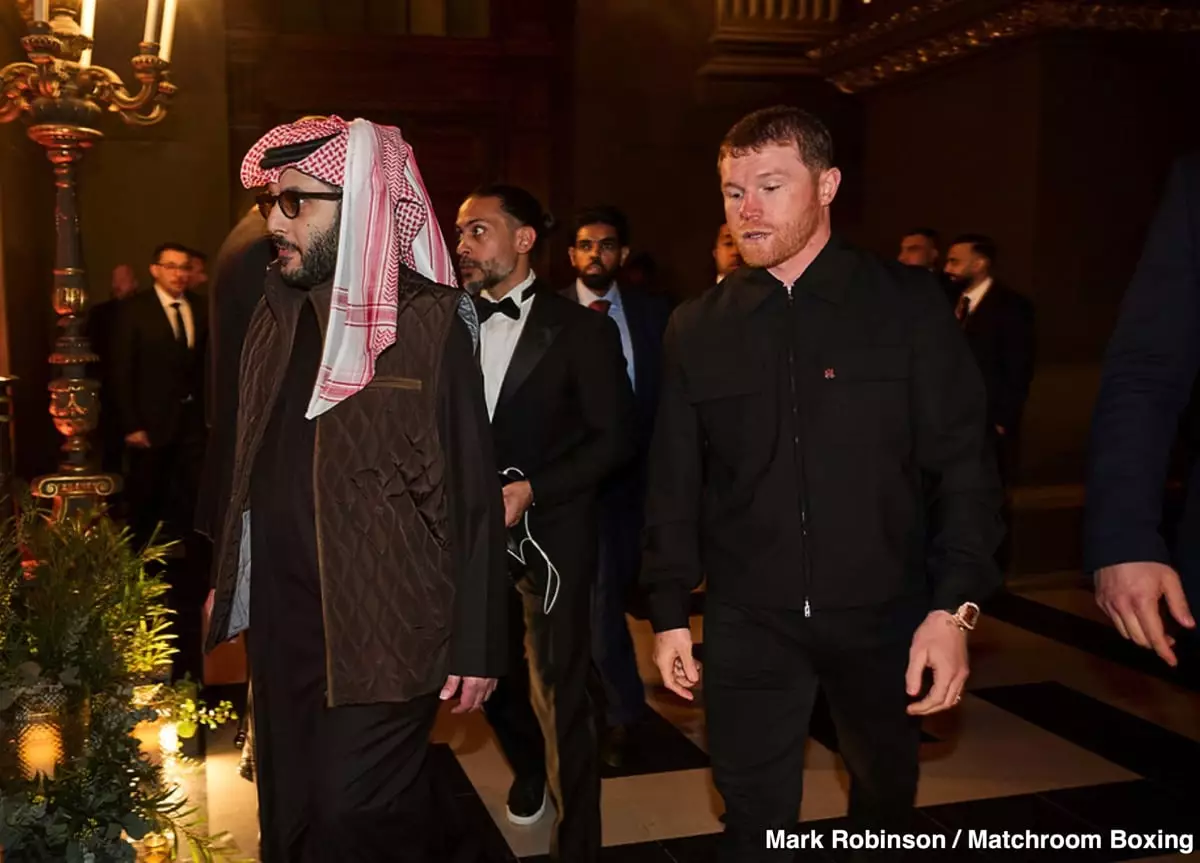Canelo Alvarez stands on the brink of a financial revolution, as whispers of a potential $400 million payday circulate in the boxing world. As he prepares for his undisputed super middleweight championship fight against William Scull in Riyadh on May 3rd, and a future bout with Terence Crawford in September, it’s becoming increasingly clear that Canelo’s motivations have shifted from glory to wealth. This pivot from seeking titles to chasing lucrative contracts illustrates not just a pragmatic approach to his fading boxing career, but also highlights the drastic economic transformations within the sport.
Prominent boxer Mikey Garcia has shed light on this shift, suggesting that Canelo’s current net worth—estimated between $200 and $300 million—may soon double, thanks largely to the immense financial backing from Saudi Arabia. For Alvarez, this represents not just a personal milestone; it’s a legacy-building venture. “He can do whatever he wants with his $300 million right now,” Garcia elaborated, emphasizing the generational wealth implications that such a payday could engender. This speaks volumes about how modern athletes view their careers, especially in a sport where longevity and health can be uncertain.
Titles vs. Wealth: A Paradigm Shift
In Canelo’s case, titles once defined his career. But for a fighter who has captured nearly every championship belt available, they no longer hold the same allure as they once did. The modern boxing arena is less about titles and more about financial gain—a transition that Garcia poignantly highlights. “He doesn’t care about the titles anymore; he cares about the money,” he stated, portraying a boxing landscape where the stakes are steep and the rewards are astronomical.
This shift signifies a pivotal understanding of what success means for elite athletes today. The idea of “fighting for the money” may feel disheartening to purists, yet it’s an authentic reflection of a reality shaped by industry forces, sponsorship, and, increasingly, international funds. Canelo’s potential decisions regarding risky future matchups could transform not just his bank account, but those of fighters like Crawford and upcoming competitors who stand to benefit from his drawing power.
A Risky Road Ahead
The stakes are high, especially if Alvarez secures a new contract with Riyadh Season. Such a deal may mandate him to fight challengers like Dmitry Bivol, Artur Beterbiev, and David Benavidez, who represent formidable obstacles. The allure of accumulating further wealth naturally also brings increased risk, as Alvarez might have to expose himself to younger, hungrier talent ready to seize the limelight.
Garcia argues that while risk is part of the equation, it is balanced by opportunity. He believes in Canelo’s strength and resilience, predicting a victory against Crawford, despite the latter’s technical proficiency. As Alvarez gears up for this monumental battle, it becomes clear that fans are not just witnessing the unfolding of a fight, but an ongoing saga in which financial implications outweigh all else.
Crawford vs. Canelo: A Financial Showdown
When examining the prospective matchup between Alvarez and Crawford, one must appreciate the almost theatrical quality of their entangled stories. While Crawford may boast superior boxing skills, questions linger about his power and ability to maintain his style under Canelo’s pressure. The significant financial stakes of this bout promise to eclipse traditional competitive spirit, turning it into a spectacle of wealth and savvy.
Crawford, stepping up to 168 pounds, is set to face a heavyweight challenge both physically and financially. For Crawford, this fight could redefine his legacy, providing the largest payday of his career. As the two fighters grapple not only with each other but also with the relentless lure of money, the significance of this bout has transcended the squared circle. It has morphed into an illustration of an evolving sport that rewards financial security over historical accolades.
In essence, Canelo Alvarez serves as a salient example of the new age of boxing — one where financial development has become intrinsically linked with athletic prowess, shaping not only the careers of fighters but the sport’s future as a whole. This ongoing change underscores the complexities athletes face today, revealing that fighting is not merely about glory but also about crafting legacies fortified by wealth.

